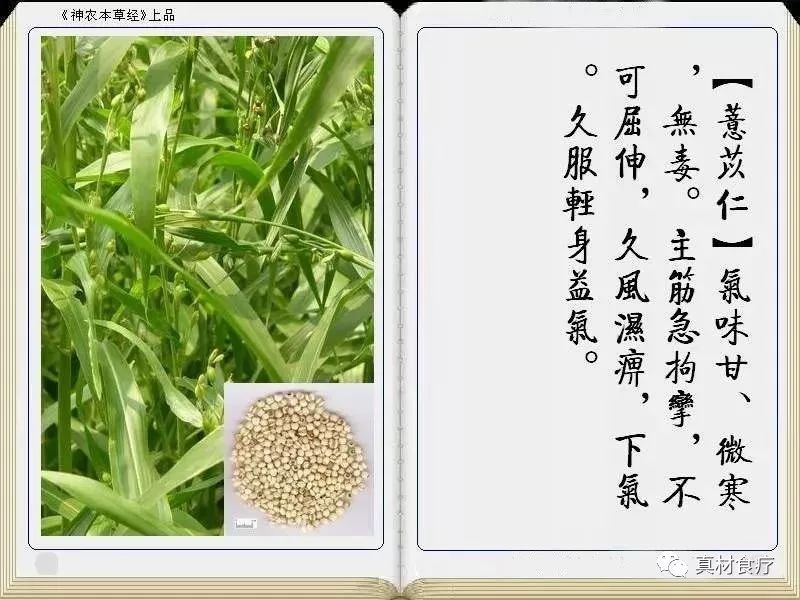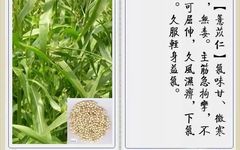

Coix Seed (Yi Yi Ren)
Pronunciation: Yi Yi Ren
Alias: Job’s tears, barley, coix seed.
Functions: It promotes diuresis and dampness elimination, dispels dampness and alleviates pain, strengthens the spleen and stops diarrhea, clears heat and expels pus. It is indicated for urinary difficulties, edema, beriberi, dampness obstruction, initial stages of damp-heat, as well as spleen deficiency diarrhea, lung abscess, and intestinal abscess.
Nature and Flavor: Sweet and slightly cold.
It is effective for muscle spasms, rigidity that prevents bending and stretching, wind-damp obstruction, and qi stagnation. Long-term use can lighten the body and enhance qi. Its root is known as Jie Li (解蠡). It grows in wetlands and fields.
According to the Famous Physicians, it is also called Wu Can, Qi Shi, and Gan, and is harvested in August; the roots can be collected at any time.
The Shuo Wen states: Yi, Yi Yi, also known as Ying, Gan, and Yi Yi; the Guang Ya states: Gan, Qi Shi, refers to the eye. In the Wu Yue Chun Qiu, Gun married the daughter of the You Shen clan, named Nu Xi, who, while still young and not yet pregnant, played on Di Mountain, consumed coix seed, and was thought to be affected by it, thus becoming pregnant. In the Book of the Later Han, it is recorded that Ma Yuan in Jiaozhi often consumed coix seed to lighten the body and reduce desires to overcome miasma. Yi is commonly written as Yi, not otherwise.
(◕ᴗ◕✿) If you like it, remember to share it with more people!


